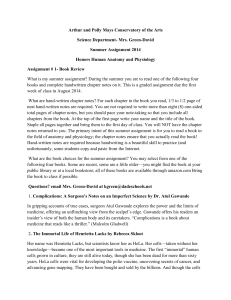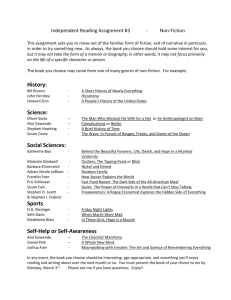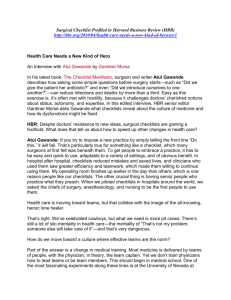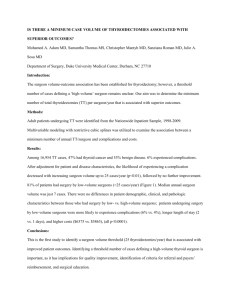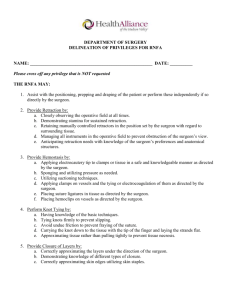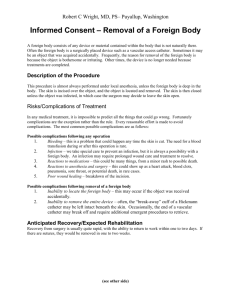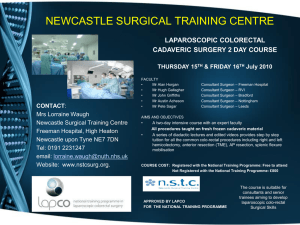The Perfection of Industrialization in Medicine and its Imperfect Effects
advertisement
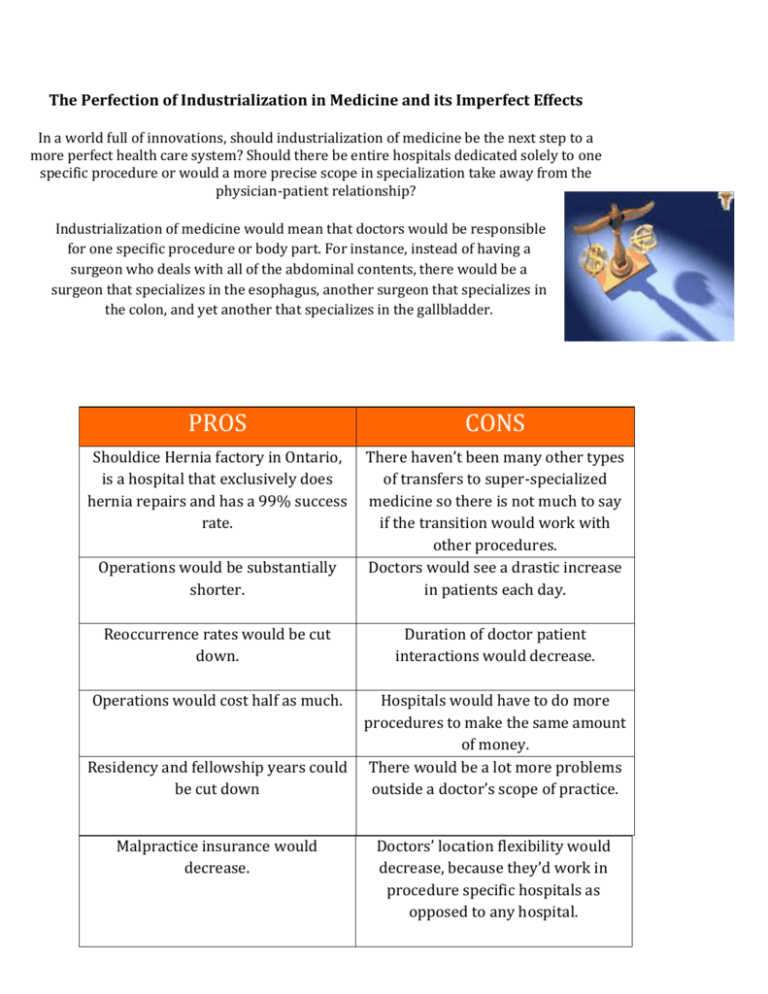
The Perfection of Industrialization in Medicine and its Imperfect Effects In a world full of innovations, should industrialization of medicine be the next step to a more perfect health care system? Should there be entire hospitals dedicated solely to one specific procedure or would a more precise scope in specialization take away from the physician-patient relationship? Industrialization of medicine would mean that doctors would be responsible for one specific procedure or body part. For instance, instead of having a surgeon who deals with all of the abdominal contents, there would be a surgeon that specializes in the esophagus, another surgeon that specializes in the colon, and yet another that specializes in the gallbladder. PROS CONS Shouldice Hernia factory in Ontario, is a hospital that exclusively does hernia repairs and has a 99% success rate. Operations would be substantially shorter. There haven’t been many other types of transfers to super-specialized medicine so there is not much to say if the transition would work with other procedures. Doctors would see a drastic increase in patients each day. Reoccurrence rates would be cut down. Duration of doctor patient interactions would decrease. Operations would cost half as much. Hospitals would have to do more procedures to make the same amount of money. There would be a lot more problems outside a doctor’s scope of practice. Residency and fellowship years could be cut down Malpractice insurance would decrease. Doctors’ location flexibility would decrease, because they’d work in procedure specific hospitals as opposed to any hospital. “Lucian Leape, a Harvard Pediatric surgeon who has made a study of medical error, explains, ‘a defining trait of experts is that they move more and more problem-solving into an automatic mode.’ With repetition, a lot of mental functioning becomes automatic and effortless, as when you drive a car to work. A surgeon for whom most situations have automatic solutions has a significant advantage. Atul Gawande, MD General Surgeon, Brigham and Woman’s Hospital April. 1, 2003 Vs “The idea of massively transferring care to super-specialized departments would mean an important restructuring of hospital ward capacities compared to the current norms (including technical equipment and staffing as the current numbers of specialists could not possibly fulfill the newly created superspecialized centers).” Richard Cescka, MD 3rd Dept. Internal Medicine, University General Hospital Oct. 3, 2013 Questions to Consider Should medicine be super specialized? Does the best medical care require fully trained doctor? If super specialization were to work, would it only work for medical treatment, or could it be used for medical diagnosis? As a future physician do you think your job satisfaction would increase or decrease with specialized medicine? Interesting Quotes: Atul Gawande, Complications: “I asked Brynes Shouldice, a son of the clinic’s founder and a hernia surgeon himself, whether he ever got bored doing hernias all day long. ‘No,’ he said in a Spock-like voice. ‘Perfection is the excitement.” European Journal of Internal Medicine: “Internal care, both outpatient and inpatient, brings considerable economic gain. In comparison with superspecialized care, the main savings are represent by fewer physician visits, and it is certainly more economical if one physician can take care of multiple diseases rather then having patients visit specific medical facilities for each illness.” Atul Gawande, Complications: “Still, resistance to this vision of mechanized medicine will remain. Part of it, stems from legitimate concern that, for all the technical virtuosity gained, something vital is lost in medicine by machine. Modern care already lacks the human touch, and its technocratic ethos has alienated many of the people it seeks to serve. Patients feel like a number too often as it is.” http://www.elsevierdigital.com/ECIM_abstracts2013/ECIM_2013_1/in dex.html#8/z http://www.shouldice.com/at-a-glance.htm http://whenyouareserious.com/?p=156 Complications: A surgeon’s notes on an Imperfect Science by Atul Gawande


